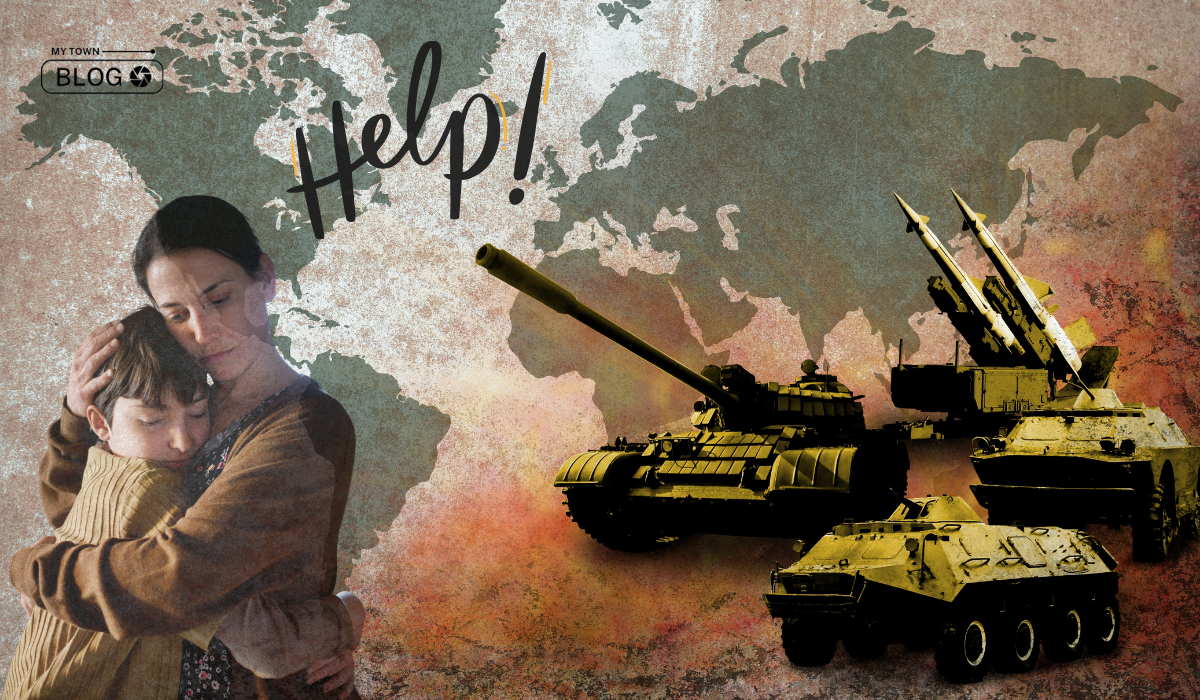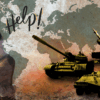As India and Pakistan are moving towards increased tensions, the possibility of all-out war is a harsh reality. While hopes for peace must always exist, preparation for the worst is also necessary. If war does break out, citizens must know how to behave in order to protect themselves, their loved ones, and their community.
This article gives a thorough look at what to do when there is a war, from being conscious to taking care of your health.
Stay Informed: The Importance of Reliable News Sources
- Stay Away from Misinformation: During war, misinformation spreads fast. Make sure that you are obtaining information from credible news sources and government announcements for facts.
- Listen Emergency Broadcasts: Governments will probably provide emergency broadcasts and warnings to allow individuals to navigate through emergencies. Listen to the local radio or television to receive vital information.
Follow Official Instructions: Civil Defence and Safety Protocols
- Instructions for Air Raid Siren and Shelter: In case of airstrike or missile attacks, there will be instructions from the authorities. They must be followed immediately to keep oneself safe from danger.
- Evacuation Plans: Know evacuation zones and evacuation zones. Evacuation plans must be practiced in advance to respond swiftly when the need comes.
- Local Authorities: Work alongside civil defense units, firemen, and police officers, who will assist you in times of emergency.
Prepare an Emergency Kit: What to Pack for Survival
- Basic Essentials: An effective emergency kit is crucial during a war. Bring along non-perishable food, water, first-aid kit, batteries, and flashlights.
- Critical Documents: Store identification, medical record, and important documents in a safe and convenient place.
- Medicines and Hygiene Products: Store any prescription drug and hygiene products such as soaps, disinfectants, and sanitary products.
Create a Family Emergency Plan: Coordinating During Chaos
- Communication Plan: Have a mutually agreed communication means (e.g., family WhatsApp group, or rally point) in the event of mobile network failure.
- Evacuation Plan: Identify some of the exits of your home and identify a meeting place in case you become separated.
- Alternate Contacts: Appoint a relative or friend outside the war zone to be a central contact for all members of your family.
Mental Health Awareness: Coping with Stress and Anxiety
- Remain Calm and Composed: The war is psychologically draining. Learn relaxation skills such as deep breathing, presence, or meditation to remain calm.
- Restrict Media Exposure: Constant exposure to pictures and news of gruesome scenes can contribute to anxiety. Restrict watching news and limit exposure to factual news bulletins.
- Community Support: Get access to support groups or mental health professionals if available. Talking to others who are also experiencing similar distress can reduce the emotional burden.
Secure Your Home: Protecting Your Property and Loved Ones
- Strengthen Your House: Reinforce doors, windows, and walls to withstand possible blasts or shrapnel from air raids.
- Collect Critical Items: Keep valuables, money, and documents in an easily retrievable, secure, and portable place in case of evacuation.
- Stay Indoors: Stay indoors during periods of continued hostilities unless evacuation is utterly unavoidable. It helps to minimize exposure to possible dangers like bombing, firing, or crossfire.
Understand the Impact of War on Everyday Life
- Food and Water Shortage: War usually involves supply disruptions. Rationing and scarcity of essential resources like food, water, and petrol are unavoidable.
- Damage to Infrastructure: Roads, electricity wires, and communication cables can get wrecked or interrupted. Keep backup provisions like flashlights, power banks, and replacement fuel for automobiles.
- Economic Impacts: War tends to create economic uncertainty, impacting jobs, prices, and supply of products. Plan your budget accordingly and anticipate possible long-term disruptions.
Support Humanitarian Efforts: Helping the Vulnerable
- Volunteer Your Time: If possible, assist local NGOs, government agencies, or relief groups in providing food, shelter, and medical care to displaced or underprivileged individuals.
- Donate Supplies: Assist in humanitarian relief by donating supplies, such as food, clothes, medicine, and money.
- Provide Shelter: If feasible, provide shelter to displaced people or families. Communities can pool together to provide shelter to the most vulnerable during war.
Avoid Engaging in Hostilities: The Importance of Staying Neutral
- Do Not Get Dragged into Violence: As a civilian, your role is to remain safe, not be involved in the fighting. Stay away from protests or groups whose intention is to extend hostility.
- Respect the Law: Comply with international laws of humanity that safeguard civilians in times of war. Geneva Conventions dictate the rules under which people are treated regardless of war.
Call for Peace: Supporting Diplomatic Initiatives
- Support Diplomatic Solutions: Campaign for Peace. Support appeals for negotiations between India and Pakistan, encouraging both governments to seek diplomatic avenues to settle conflicts.
- Peace Movements: Participate in or donate to peace movements if possible. Even in times of war, all efforts through diplomacy should be the priority in trying to save lives.
Conclusion
With tensions rising in India-Pakistan relations, it is wise to prepare for whatever happens. Knowing what to do, ranging from educating oneself to worst-case scenario planning, can help save lives and prevent the psychological and physical expenses of war. Ranging from self-protection activities, psychiatric intervention, to providing aid to humanitarian operations, each step counts towards securing individuals’ health and wellbeing and those of communities.
While we hope for peaceful resolution, understanding how to survive war-torn situations is of the highest priority for survival and security in uncertain times.
Also Read: Operation Sindoor and India’s Nationwide Civil Defence Drill








